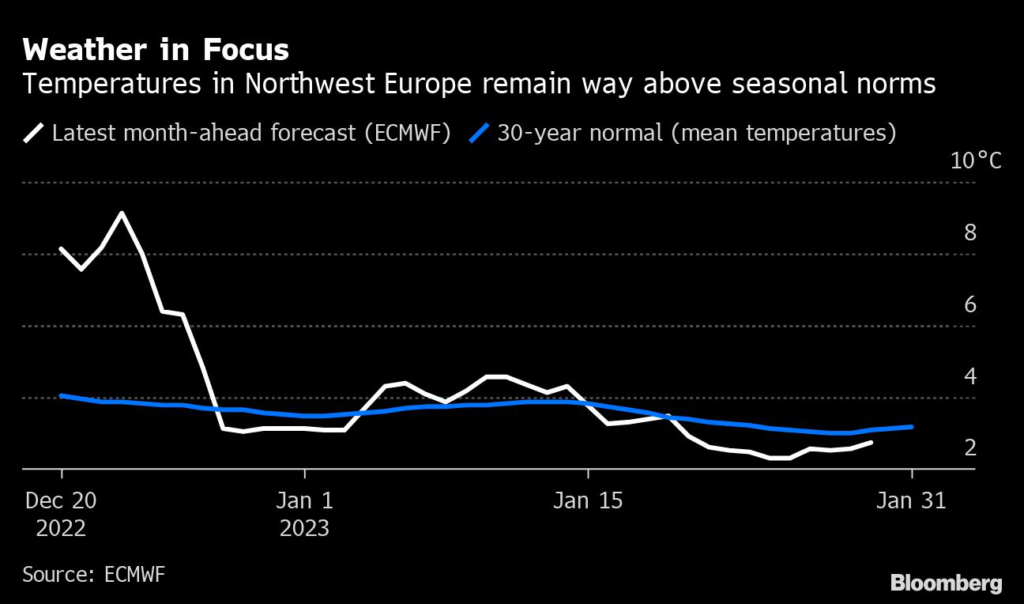European natural gas prices pulled back after Gazprom PJSC said its supplies continue through alternative routes following a pipeline blast in Russia.
(Bloomberg) — European natural gas prices pulled back after Gazprom PJSC said its supplies continue through alternative routes following a pipeline blast in Russia.
The fuel is being shipped to customers in full, the company said, confirming earlier reports that a link was damaged by a fire on Tuesday. The pipeline is part of a major transit route crossing Ukraine and into the European Union. Ukraine’s gas grid also confirmed that Russian flows continue as normal. Benchmark futures initially surged on reports of the explosion.
After this brief distraction, traders are now back to assessing the impact of planned price caps in the European Union next year — with many industry watchers seeing both bearish and potentially bullish drivers from the move. Ample supplies of liquefied natural gas, coupled with warmer weather this week, are also helping to keep prices in check.
Read also: Europe Becomes a Semi-Reluctant Interventionist in Gas Markets
Gas consumption in Europe is set to shrink by more than 50 billion cubic meters in 2022, “the sharpest decline in history,” led by price-driven demand destruction and mild weather, Bloomberg Intelligence said in a note.
Yet, the planned EU price ceiling — without an associated cap on demand — risks making the region’s gas supply deficit worse by encouraging consumption, Goldman Sachs Group Inc. analysts said in a report. That could tighten the global market next year and, in a worst-case scenario, force governments to ration gas.
The report on the pipeline explosion also showed that traders remain on edge. Even with fuller-than-normal inventories providing some buffer, Europe is still vulnerable to severe cold snaps or prolonged supply disruptions. Russia has progressively cut flows to Europe through other major links following its war in Ukraine, and in retaliation for Western sanctions targeting President Vladimir Putin’s regime.
Short-term weather forecasts indicating above-average temperatures during the holiday period, and hopes for rebounding nuclear output in France, are pushing energy prices lower for now, analysts at Alfa Energy said in a note. “However, the constant motion of weather models is still introducing volatility into the markets.”
EUROPE WEATHER: Temperatures to Cool on Continent Next Week
Dutch front-month gas contract, a benchmark for Europe, traded 1.7% lower at €106.70 a megawatt-hour as of 4:30 p.m. in Amsterdam. It’s headed for a third day of declines after jumping as much as 6.6% earlier. The UK equivalent was down 1.4%.
–With assistance from Anna Shiryaevskaya.
More stories like this are available on bloomberg.com
©2022 Bloomberg L.P.










